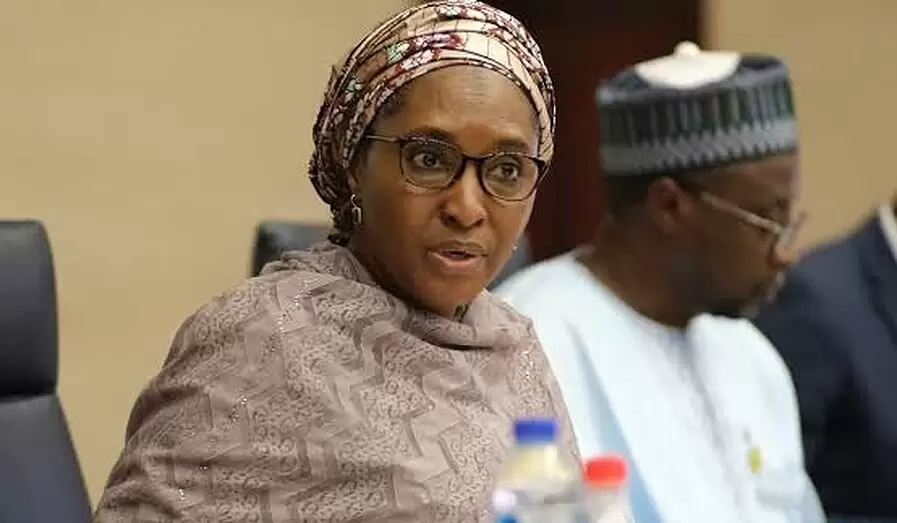The Federal Government has revised upwards the Independent Revenue Projection from Ministries, Departments and Agencies in the 2022 fiscal period by N754.31bn.
The N754.31bn represents an increase of 71.09 per cent from the approved N1.06trn in the 2021 fiscal period to N1.86trn next year.
Advertisement
The figures are contained in the 2022 budget proposal which was made public last week by the Minister of Finance, Budget and National Planning, Zainab.
About 122 agencies are required to pay their operating surpluses into the Consolidated Revenue Fund of the federal government based on the Fiscal Responsibility Act 2007.
The Act requires government agencies to remit 80 per cent of their annual operating surpluses to the Consolidated Revenue Fund.
The operating surplus is made up of revenues accruing to government agencies above what they are approved to spend at the beginning of the budget year.
Advertisement
Some of these agencies are the Petroleum Products Pricing Regulatory Agency, the Central Bank of Nigeria, the Nigerian Ports Authority, the Federal Airports Authority of Nigeria, the Nigeria Postal Service, the Nigerian Communications Commission, the National Inland Water Ways Authority, and the National Information Technology and Development Agency.
There is also the Nigeria Airspace Management Agency, the National Examination Council, the Nigerian Television Authority, the Nigerian Shippers’ Council, the National Health Insurance Scheme, the National Pension Commission, the Corporate Affairs Commission and the Standards Organisation of Nigeria, among others.
Over the years, many of these agencies have been underpaying revenue into the coffers of government.
The Fiscal Responsibility Commission had in May this year said that 32 MDA failed to remit over N1.2trn of their operating surplus to the CRF of the federal government.
The FRC Executive Chairman, Victor Murako, had explained that government agencies were expected to remit 80 per cent of their operating surplus to the CRF as encapsulated in the Fiscal Responsibility Act, 2007.
Advertisement
He said this payment is borne out of the need for the federal government to generate funds in order to meet revenue requirements in its annual budget execution.
Some of the 32 defaulting MDAs include the National Broadcasting Commission (NBC); Federal Radio Corporation of Nigeria (FRCN); Bank of Industry (BOI); Nigeria Immigration Service (NIS), National Drug Law Enforcement Agency (NDLEA); and Small and Medium Enterprises Development Agency of Nigeria (SMEDAN).
In a bid to check the trend, the Ministry of Finance, Budget and National Planning in its Fiscal Strategy Document for the next three years, stated that performance contracts for Chief Executive Officers and key management staff, would be set with financial indicators and targets for each GOEs.
The document, which was obtained by THE WHISTLER in Abuja, stated that the government would be limiting cost-to-revenue ratio to maximum of 50 per cent; with regular monitoring and monthly publication of revenue and expenditure performance of GOEs by the Office of the Accountant General of the Federation.
Similarly, the document explained that there will be mandatory use of the Treasury Single Account for all financial transactions; adding that quarterly remittance of interim operating surplus and reconciliation of cumulative remittances at year end after audit would be implemented.
It added that agencies with capacities for self-funding would be excluded from allocations in the Federal Budget; while appropriate sanctions will be imposed for unauthorized use of Internally Generated Revenue.
Advertisement
It said there would be “Introduction of incentive mechanism for good performance in revenue generation; and amendment of relevant sections of the Acts establishing some of the GOEs to reflect current economic realities and policy thrust of government.
It added. “The Accountant General of the Federation will deduct directly from the accounts of the GOEs forthwith all funds GOEs fail to remit.”
To further ensure transparency, the GOEs will be required to prepare their budgets using the GIFMIS platform.
Speaking on the development, the finance minister stated that the new strategy of government is to enhance independent revenue generation, as well as maximize the huge potentials and operational efficiency of Government Owned Enterprises to earn significant revenues to fund the Federal Government budget as obtainable in other countries.
Ahmed said, “It is now critical to fix our revenue challenge, because cutting expenditure is not currently a viable option, as our Public Expenditure /GDP ratio is also the lowest among same Africa’s leading economies
“The most viable solution to our fiscal challenge therefore remains to grow our revenues and plug all leakages. Our target over the medium term is to grow our Revenue-to-GDP ratio from about 8 – 9 percent currently to 15 percent by 2025. At that level of revenues, the Debt-Service-to-Revenue ratio will cease to be a critical concern.
“To further enhance Independent Revenue collection, Government aims to optimize the operational efficiencies and revenue generation focus of GOE.
“GOEs’ revenue performance and remittance will be enhanced through effective implementation of the enhanced Performance Management Framework, including possible sanctions should they default on their targets; tighter expenditure control including enforcing of Finance Act 2020 provision limiting GOEs cost-to-revenue ratio to maximum of 50%; regular independent monitoring and reporting of revenue and expenditure performance of GOEs by both the Budget Office of the Federation and the Office of the Accountant General of the Federation.”



